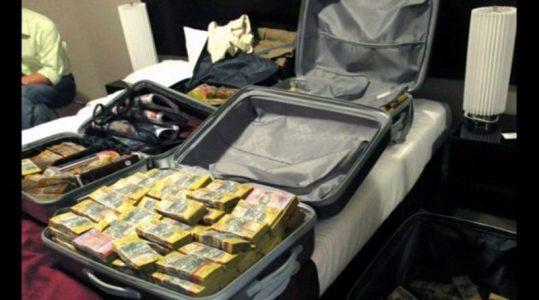
Hezbollah raise funds through a money laundering operation in Europe and South America
Lax German illicit terror finance policies permitted Hezbollah to run a vast enterprise to raise funds through a money laundering operation in Europe and South America.
French prosecutors put 15 members of the criminal organization on trial last week in Paris. According to three German media outlets – NDR, WDR and the Süddeutsche Zeitung – two of the accused men lived in the German state of North Rhine-Westphalia and an additional two men who were charged lived near the city-state of Bremen in northern Germany.
The members of the crime ring are charged with laundering Columbian narcotics money via a complex finance evasion scheme with the aid of the Lebanese diaspora.
“Germany is an ideal location for organized money laundering,” Sven Giegold, a Green Party member of the European Parliament, said according to a report in the paper Westfälischen Nachrichten.
“It is fully acceptable that one can pay cash for luxury goods or real estate,” Giegold said. “There are also no legal limits on the use of cash… Cash from dirty sources has a safe home in Germany.”
An export trader, named Ali Z., based in the city of Münster in North Rhine-Westphalia is believed to be one of the main alleged Hezbollah agents who oversaw the illegal narcotics operation that trafficked cocaine for a Columbian drug cartel, and used the profits to purchase weapons for Hezbollah to wage war in Syria.
German media declined to report Ali Z.’s last name due to privacy considerations. Ali said he was innocent and his flourishing export business was manipulated by the other accused men on trial. The Hezbollah criminal network was named the “Cedar Affair” by the authorities after Lebanon’s prized national tree.
According to German media reports, the Paris prosecutor suspects that the Lebanese network bought jewelry and watches worth roughly 10 million euros in cash from jewelry stores in North Rhine-Westphalia and other German states in one year.
In connection with the trial in Paris, 250 million euros in cash were seized, along with a weapon and a luxury vehicle, according to a report in Westfälischen Nachrichten, which quoted a spokesman for the prosecutor’s office in the city of Aachen in North Rhine-Westphalia. Two alleged money couriers for the criminal Hezbollah network were also arrested in the Aachen area with a half million euros in cash. The criminal enterprise is believed to have laundered as much as one million euros per week during the high point of its operation.
Armin Laschet, the Christian Democratic Union Party minister president of North Rhine-Westphalia, has declined to call for a ban of Hezbollah’s entire network in his state.
The Hezbollah operation worked to take proceeds from narcotics to Europe, where the money was laundered and collected, and then funneled to Lebanon and back to Columbia. According to the United Arab Emirates-based news outlet The National, an “ancient banking system known as hawala” was used to transfer drug money by circumventing regulatory controls. The National wrote, “The financial arm of Hezbollah uses supporters in the Lebanon diaspora around the world to raise funds.”
The US Drug Enforcement Agency intercepted calls in 2015 among Columbian cartel operatives that would help expose the transatlantic and Middle East criminal and terrorism networks.
The two accused men from the city-state of Bremen on trial in Paris and the role Hezbollah in Bremen may add fuel to the fire about the dangers of Hezbollah activities in Germany.
The Jerusalem Post reported exclusively in June that the Al-Mustafa Community Center in Bremen is a major hub for raising funds for Hezbollah. The Bremen intelligence agency’s report in June confirmed that the center “supports Hezbollah in Lebanon, especially by collecting donations.”
Germany allows 950 Hezbollah operatives to raise funds and recruit new members in the Federal Republic, according to numerous intelligence reports in the country that were reviewed by the Post. The United States, Canada, the Arab League, the Netherlands and Israel classify Hezbollah a terrorist organization. Germany and the European Union merely designate Hezbollah’s military wing as a terrorist entity.
Source: JP





